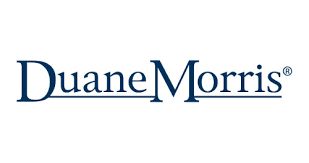
Seventh Circuit Rules Cosmetology Students Are Not Employees
ALERTS AND UPDATES
Seventh Circuit Rules Cosmetology Students Are Not Employees
August 29, 2017
The Seventh Circuit was careful to explain it was not “making a one-size-fits-all decision about programs that include practical training, or internships, or tasks that appear to go beyond the boundaries of a program.”
The Seventh Circuit Court of Appeals recently issued an opinion that supports numerous district court opinions that cosmetology students are not employees. In Hollins v. Regency Corp., ___ F.3d ___, No. 15-3607, 2017 WL 3474266 (7th Cir. Aug. 14, 2017), Chief Judge Diane Wood wrote the opinion of a unanimous panel of the Seventh Circuit affirming the grant of summary judgment against former cosmetology students who alleged they were employees of their cosmetology schools when they 1) were practicing skills on paying members of the public and 2) were performing “menial tasks,” such as sanitation, greeting guests and selling products. The Northern District of Illinois had granted summary judgment against the students, and this appeal followed.
The Seventh Circuit analyzed the potential tests for determining whether a student is an employee. It concluded that the district court was “rightly skeptical about the utility of this plethora of ‘factors’” tests—including the U.S. Department of Labor’s six-part internship test. Rather, the Seventh Circuit followed the U.S. Supreme Court’s precedent from Walling v. Portland Terminal, 330 U.S. 148 (1947), which instructed courts to analyze the “economic reality” of the situation to determine whether an employment relationship existed. The Seventh Circuit focused on several facts to help determine the economic reality: 1) the clinic floor is state-mandated for graduation/licensure; 2) students paying for “practical-training time is fundamentally inconsistent with the notion [that they] were employees;” 3) students did not need to find an internship/externship site; and 4) the school “structured things to minimize competition with ordinary beauty salons” by not employing licensed cosmetologists to work on the clinic floor and the students received clock hours (instead of money) for time spent on the floor. The Seventh Circuit also rejected the student’s argument that she was an employee when she was acting as a receptionist, cleaning and sanitizing the floor, selling salon beauty products, and restocking those products as needed. Rather, the Seventh Circuit concluded these “tasks are also part of the job of the cosmetologist,” teach students “time-management skills,” are part of the “most heavily tested subject area on the Illinois and Indiana licensing exam,” and are required by the school’s accreditor.
The Seventh Circuit was careful to explain it was not “making a one-size-fits-all decision about programs that include practical training, or internships, or tasks that appear to go beyond the boundaries of a program.” Instead, the Seventh Circuit concluded that the particular facts of this case supported the grant of summary judgment to the cosmetology school.
Conclusion
The Seventh Circuit’s opinion has important lessons for schools with students who learn in a clinic by providing services to paying members of the public. Specifically, schools should take care to inform students that they are not employees and will not be paid a wage. All tasks in the clinic should be tied to an educational goal with documentation and curriculum to support the claim.
For Further Information
If you have any questions concerning this decision, please contact Edward Cramp, Bryce Young, any member of the Higher Education Practice Group or the attorney in the firm with whom you are regularly in contact.
Disclaimer: This Alert has been prepared and published for informational purposes only and is not offered, nor should be construed, as legal advice. For more information, please see the firm’s full disclaimer.
